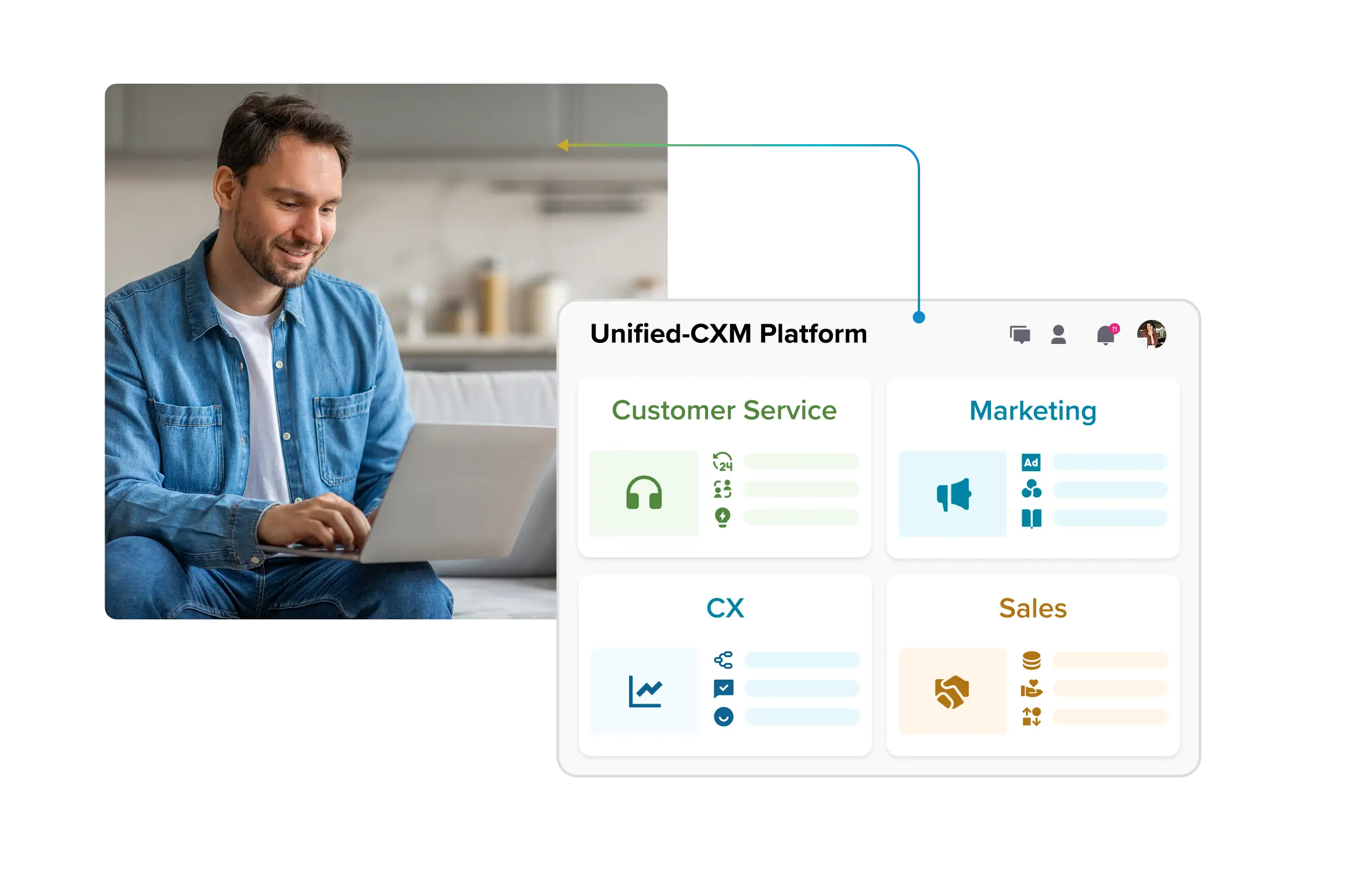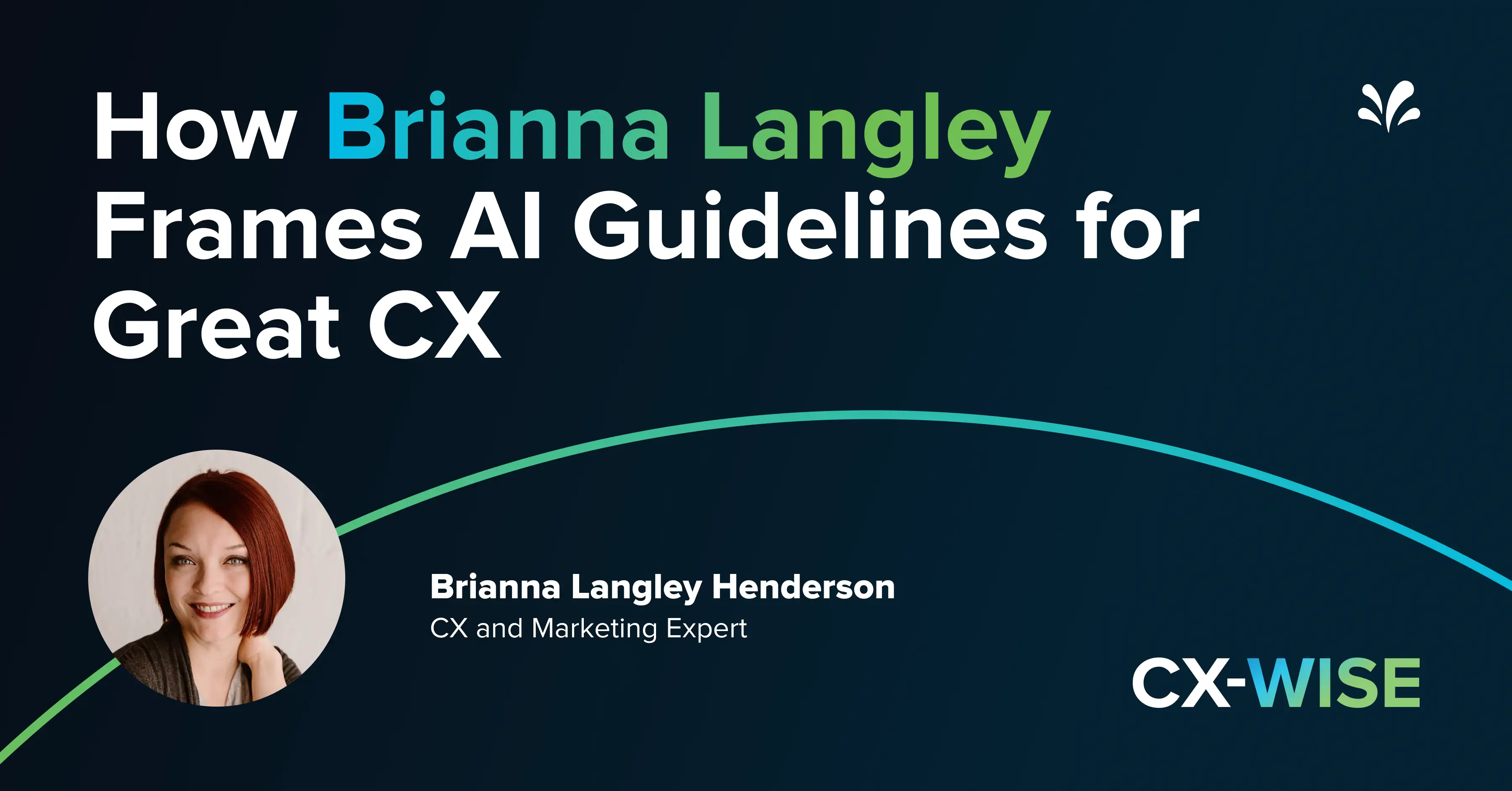The strategic AI-native platform for customer experience management
The strategic AI-native platform for customer experience management. Unify your customer-facing functions — from marketing and sales to customer experience and service — on a customizable, scalable, and fully extensible AI-native platform.

Reimagining Marketing with AI — Insights from Neal Schaffer
Once upon a time, when calculators were first introduced, math professors feared they might lose their jobs. Students, on the other hand, likely celebrated, thinking they would never have to struggle with linear equations again.
But as we now know, calculators became just a tool — one that simplified calculations without replacing the need for understanding math. Teachers still teach, and students still grapple with algebra at their kitchen tables.
The same logic applies to generative AI. Despite the initial skepticism and concerns about job displacement, people have started embracing AI as a tool that enhances and elevates the work we do — especially in marketing.
“AI tools are now changing the way we create content,” says Neal Schaffer on the CX-WISE podcast. Neal Schaffer is an author, educator, fractional CMO and social media expert with over 20 years of experience. In his conversation with host Nathan Bennett, Neal digs into how AI impacts the customer journey and shares tips on leveraging this powerful tool to boost marketing outcomes.
Let's dive in.
AI’s impact on digital customer experience
Customer experience (CX) in a digital-first world can be challenging to define and even harder to execute. Neal defines digital CX today as the overall vibe your brand projects at every stage of the customer journey — from pre-purchase to purchase and post-purchase interactions. It encompasses everything a customer can see, feel and touch.
But how can brands create meaningful experiences when most brand-customer interactions these days aren't face-to face? Enter generative AI (GenAI). While GenAI is relatively new, AI as a feature has been around for a while, driving hyper-personalization, automation and data collection.
Take the hospitality industry, for example. AI can predict if a guest prefers a sea-facing room, has specific dietary restrictions or requires special accommodations. With GenAI, marketers can scale these insights to enhance their offerings — but they must be cautious to maintain an authentic human connection.
Mapping customer journey with AI
Marketers can use GenAI to supercharge customer journey mapping through predictive analytics. If you're unsure about your audience's preferences or want to explore new audience segments, AI can generate lookalike audiences and uncover valuable insights like content preferences, messaging tones and behaviors that drive conversions, cross-selling and upselling.
A Salesforce report highlights that using AI to create lookalike audiences can lead to higher conversion rates, reduced costs, increased brand awareness and improved engagement.
Optimizing content with AI
It's 2024 and currently, the content marketing industry is valued at a respectable $600 million. A large portion of this is attributed to the rise of optimized and personalized content, courtesy of GenAI.
According to Neal, AI has been influencing content for years. When you optimize a blog for SEO keywords or A/B test a landing page, you’re already using AI. Neal encourages marketers to lean into GenAI’s speed and efficiency but warns of its limitations — many large language models (LLMs) are not updated with the latest data and may produce inaccurate or unreliable results. They can also hallucinate, creating fictional events or facts.
Below are Neal’s best practices for content marketers using AI.
Best practices for AI-powered content creation
- Avoid long-form content: Long form content increases the chances of hallucinations or errors. Use AI as an idea generation tool or editor for technical content like e-books or white papers.
- Eliminate repetitive tasks: AI can handle repetitive tasks like writing social media captions. With the right prompt, it can produce content quickly — but always review for accuracy.
- Use AI for idea generation: For short-form content, like videos, AI is a great brainstorming partner.
- Don't auto-generate everything: Over-reliance on AI-generated content can lead to spammy results. Google’s E-E-A-T (Experience, Expertise, Authoritativeness, Trustworthiness) model rewards brands that maintain human input.
Neal advises using AI as a supportive tool: “AI on the inside, human on the outside” to maximize marketing effectiveness.
AI’s role in user-generated content
Marketing for B2B brands presents unique challenges. Today’s tech-savvy audience demands creative, accurate presentations of technical information, delivered in an engaging and relatable way.
Neal suggests leveraging AI for technical writing and emphasizes the growing influence of user-generated content (UGC) in this field.
He cites Evernote as a prime example. The task management app’s blog is heavily centered around customer stories, contributed by its users. By harnessing UGC, Evernote has built a reliable, authentic brand voice that resonates with its audience, showcasing how real users benefit from the platform.
AI plays a crucial role in enhancing UGC by analyzing user data to identify trends, sentiment and language that resonate with the target audience. Using natural language processing (NLP), these tools have the power to curate and edit content that aligns with a brand’s tone while staying authentic. These AI-powered tools also sift through feedback and social media mentions, turning raw data into insights to highlight impactful UGC.
AI can also streamline UGC creation by suggesting content ideas based on trends and prompting users with personalized questions, encouraging more structured, engaging contributions. Neal emphasizes pairing UGC with reviews from sources like G2 and TrustRadius, along with video marketing.
AI optimizes video content by generating titles, captions and questions that boost customer engagement. Through analytics, brands can refine their UGC strategy to ensure the featured content is always relevant and aligned with business goals.
Maintaining authenticity in social media
“Think of each social platform as a different country. You need to speak a different language for each,” Neal explains.
The average person spends around 145 minutes (2.5 hours) a day on social media. In the era of “stay up to date” and “document everything” it’s essential for brands to understand the best ways to stay afloat in these dynamic platforms. For instance, content created for TikTok won’t work on LinkedIn. The key is adjusting your messaging to fit the platform.
Social media is changing every day, with algorithms and trends being updated frequently and regulations including the EU’s data privacy policy (GDPR) and the EU’s AI Act coming into place. Neal shares some guidelines for navigating this with AI:
- Know your audience: Dive deep into audience demographics and build personas across platforms. While promoting an AI e-book on TikTok may be tricky, focus on employer branding there. Use AI-driven insights to understand your audience better.
- Leverage social listening: Use social listening tools to tap into audience conversations and pain points. Tailor your content to be more personalized and targeted for greater impact.
- Tap into influencer databases: AI-powered influencer databases, even in B2B, help you find influencers that align with your brand. This leads to more cross-selling and upselling opportunities.
Brands can benefit from employing a tool like Sprinklr that helps manage social media across platforms, brands, teams and geographies, giving them an edge over competitors. Learn more about it here.
Conclusion
AI is transforming the way marketers approach content creation, customer journey mapping and social media strategy. While it’s a powerful tool that offers speed and scalability, AI should be viewed as a partner — not a replacement. As Neal Schaffer wisely advises, “Let AI work behind the scenes, but ensure that the human touch remains at the forefront.” Check this out to know how you can arrive at this outcome for all your solutions.
Don't forget to tune into the CX-WISE podcast for more marketing and AI insights with Neal Shaffer!
PS: If something on the podcast caught your ear, make sure you share it with the hashtag #CXWISE to win a free copy of Neal’s book, “Digital Threads”











